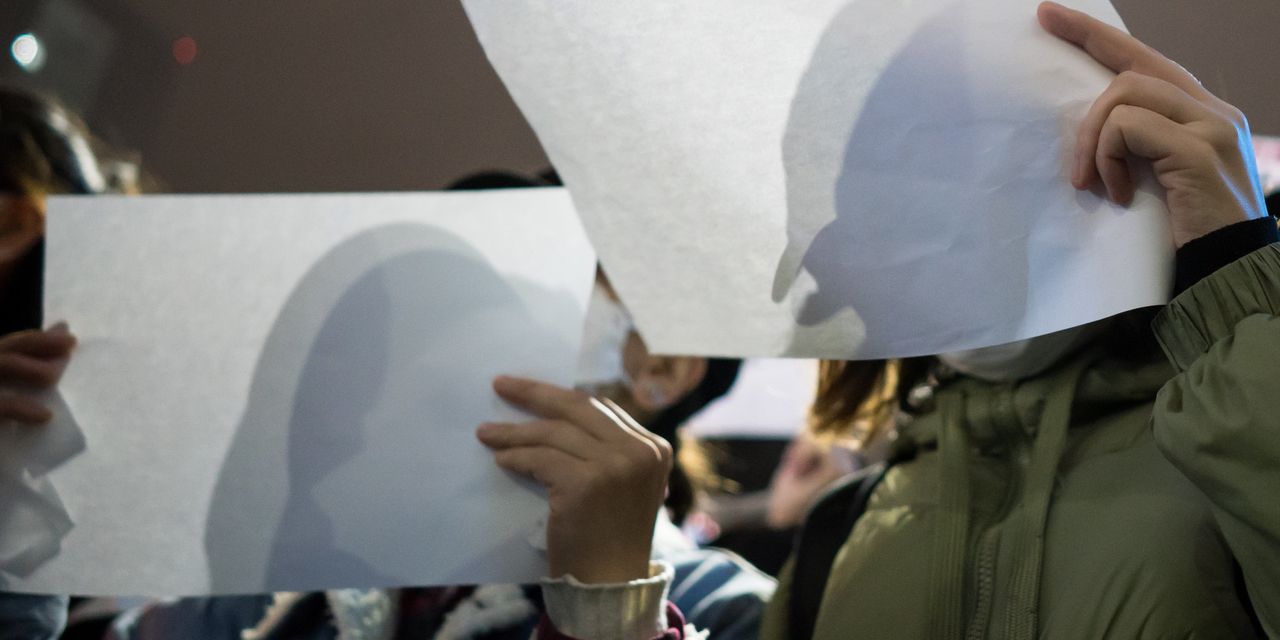A renewed push by China to vaccinate elderly people has sparked hopes for an end to the country’s strict zero-COVID policy, but the world’s second-biggest economy is facing challenges and at least a year of hard work before the policy can end, the Associated Press reported.
A vaccination campaign will require months, and China also needs to build up its hospital capacity and work out a long-term virus strategy, health experts and economists warn. They say the zero-COVID policy is likely to stay in place until mid-2023, and possibly as late as 2024.
“China is in no place right now to move away from its ‘zero-COVID’ policy toward a ‘living with COVID’ policy,” said Mark Williams, chief Asia economist for Capital Economics. “Healthcare capacity is very weak.”
The Chinese policy has come into renewed focus this week after a weekend of protests in cities including Shanghai and Beijing over lockdowns that have kept many people in their homes for months.
See also: China protests are biggest threat to Communist Party rule since Tiananmen Square, Kyle Bass says
People say they don’t have reliable access to food and medicine, and there was an outcry after two children who were in quarantine died after their parents said anti-virus controls prevented them from receiving medical care. A fire in the northwestern city of Urumqi that killed at least 10 people became another flashpoint last Friday after residents claimed that people trying to escape were blocked by locked doors.
Anthony Fauci, President Joe Biden’s chief medical adviser, said this the weekend that China’s policy did not make sense for public health and that its homegrown vaccines are not effective enough.
On Tuesday, the head of the International Monetary Fund, Kristalina Georgieva, urged a “recalibration” of the zero-COVID approach, “exactly because of the impact it has on both people and on the economy.”
Now read: China’s strict zero-COVID policy isn’t worth the damage it does to its economy
Separately on Wednesday, the ruling Communist Party has vowed to “resolutely crack down on infiltration and sabotage activities by hostile forces” following the largest street demonstrations in decades, the AP reported.
In the U.S., known cases of COVID are rising again, with the daily average standing at 42,451 on Tuesday, according to a New York Times tracker, up76% from two weeks ago. Cases are rising in 28 states, plus Guam and Washington, D.C., led by Missouri, where they are up 107% from two weeks ago.
The daily average for hospitalizations is up 12% to 31,125, led by Louisiana, where it has climbed 84% from two weeks ago, followed by California, where it is up 58%.
The daily average for deaths is up 2% to 285.
Coronavirus Update: MarketWatch’s daily roundup has been curating and reporting all the latest developments every weekday since the coronavirus pandemic began
Other COVID-19 news you should know about:
• Chinese authorities are relaxing the strict and sweeping lockdown measures that had been imposed on a city where many iPhones are made, but Apple Inc.
AAPL,
still isn’t out of the woods, writes MarketWatch’s Emily Bary. Chinese officials reportedly ended broad lockdown measures late Tuesday in the city of Zhengzhou, where Foxconn
HNHPF,
operates a factory that makes iPhones, according to Bloomberg News and others. But analysts see continued question marks for Apple, which warned earlier in November that it expected the COVID-19 restrictions in China and the resulting production snags to affect iPhone shipments during the holiday quarter.
• Twitter will no longer enforce its policy against COVID-19 misinformation, raising concerns among public-health experts and social-media researchers that the change could have serious consequences if it discourages vaccination and other efforts to combat the still-spreading virus, the AP reported. “Effective Nov. 23, 2022, Twitter is no longer enforcing the COVID-19 misleading information policy,” the company said in an update on its rules published on Monday. By Tuesday, some Twitter accounts were testing the new boundaries and celebrating the platform’s hands-off approach, which comes after Twitter was purchased by Elon Musk. Health experts responded with dismay but urged people to fight back.
• A naturopathic doctor who sold fake COVID-19 immunization treatments and fraudulent vaccination cards during the height of the coronavirus pandemic was sentenced in California on Tuesday to nearly three years in prison, federal prosecutors said, the AP reported. Juli A. Mazi pleaded guilty last April in federal court in San Francisco to one count of wire fraud and one count of false statements related to healthcare matters.
Here’s what the numbers say:
The global tally of confirmed cases of COVID-19 topped 642.9 million on Monday, while the death toll rose above 6.63 million, according to data aggregated by Johns Hopkins University.
The U.S. leads the world with 98.7 million cases and 1,079,888 fatalities.
The Centers for Disease Control and Prevention’s tracker shows that 228.4 million people living in the U.S., equal to 68.8% of the total population, are fully vaccinated, meaning they have had their primary shots.
So far, just 37.6 million Americans have had the updated COVID booster that targets the original virus and the omicron variants, equal to 12.1% of the overall population.
